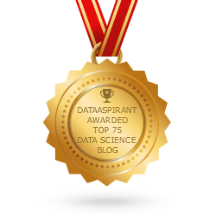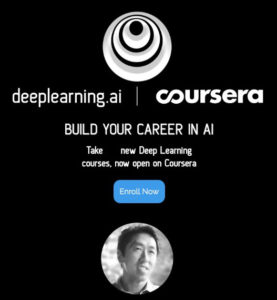Why Every Student Should Understand the Basics of Data Science

In our rapidly evolving digital age, the sheer volume of data generated every second is astonishing. From the simple act of browsing a website to the complex intricacies of satellite data transmission, data threads its way through nearly every aspect of our lives.
As such, the ability to understand, interpret, and harness this data effectively becomes more than just a skill for tech specialists—it's a fundamental capability that every individual should possess.
While many students may wonder about the relevance of data science to their chosen field of study, its principles are omnipresent, influencing sectors from health to finance and from arts to engineering.
For students, understanding the basics of data science can transform how they approach academic challenges.
Why Every Student Should Understand the Basics of Data Science
For instance, imagine being able to efficiently "do my paper with Paperwriter" by harnessing data analysis, providing evidence-backed arguments, or predicting trends in your research field.
The assertion that every student should grasp the rudiments of data science is more than just a passing statement—it's a call for preparedness in a data-driven future.
The Interdisciplinary Nature of Data Science
You might assume that data science belongs solely in the realm of tech companies or major industries. However, its beauty lies in its universal applicability. Today, we find biologists utilizing data analytics to understand DNA sequences better. Historians employ data science methodologies to decode ancient scripts or predict societal trends.
Literature enthusiasts might harness these principles to analyze the progression of linguistic styles over centuries. The list goes on. Regardless of the discipline, the tools and techniques of data science offer valuable insights, making it an essential area of understanding for students of all backgrounds.
Everyday Encounters with Data
Every day, without perhaps even realizing it, our lives are deeply intertwined with data-driven processes. When you log into your favorite social media platform, sophisticated algorithms analyze your preferences, interactions, and behavior to customize your feed.
Shopping online? Recommendations you receive aren't random but are the result of intricate data analyses predicting what you might like based on past purchases and viewed products. Even when you use navigation apps, they predict the quickest route by analyzing real-time traffic data.
Understanding the basics of how these algorithms work not only demystifies the process but also empowers students to be conscious users, allowing them to leverage these tools more effectively and discerningly.
Data Literacy in a Digital Age
Living in a digital age requires a new form of literacy: data literacy. It's not just about consuming data, but critically analyzing it. News articles, research papers, and even social media are awash with charts, graphs, and statistics.
Being data literate enables students to interpret this information, ask the right questions, and not take everything at face value. Without a basic grasp of data science principles, it's easy to be misled by misrepresented data or fall prey to the burgeoning spread of misinformation. In essence, data literacy equips students with a protective shield against false or skewed narratives.
Enhancing Critical Thinking and Problem-Solving Skills
Beyond the immediate practical applications, understanding the foundations of data science enriches a student's cognitive toolkit. The methodologies taught in data science—like hypothesis testing, structured problem-solving, and logical reasoning—have broader applications than just data analysis.
These skills promote structured thinking, a systematic approach to challenges, and a heightened ability to draw connections between seemingly unrelated pieces of information. Whether a student is working on a complex calculus problem, formulating a thesis statement for an essay, or planning a project, the critical thinking and problem-solving skills honed by a basic understanding of data science principles can be a game-changer.
Job Market and Career Prospects
We are standing at the threshold of an era where data-driven decision-making is not just preferred but deemed essential across industries. Companies, governments, and non-profits are on the constant lookout for individuals who can bridge the gap between raw data and actionable insights.
Students with even a foundational grasp of data science find themselves at a distinct advantage, having a leg up in fields as diverse as marketing, finance, healthcare, policy-making, and beyond. In essence, the job market is echoing a clear message: data-savvy is the new black, and students equipped with these skills are highly sought after.
Preparing for Future Technologies and Innovations
The pace at which technology is advancing is nothing short of breathtaking. From the Internet of Things (IoT) and Augmented Reality (AR) to Artificial Intelligence (AI) and beyond, innovations are continually reshaping the landscape of possibilities.
Central to all these advancements is data. Students who understand the basics of data science will not only be better prepared to harness these technologies but also to play a role in their evolution, ensuring they are at the forefront of creating, refining, and implementing next-generation solutions.
How Can Students Start
Entering the world of data science might seem daunting, but it's more accessible than most students realize. Here's how one can embark on this journey
Online Courses: Platforms like Coursera, Udemy, and edX offer myriad courses on data science basics. Many of these courses are tailored for absolute beginners, requiring no prior knowledge.
Workshops and Bootcamps: Local universities, tech hubs, or community centers often organize workshops and bootcamps, providing hands-on experience and allowing students to grasp concepts through practical applications.
Books: For those who prefer traditional learning, there are several introductory books on data science. Titles like "Data Science for Dummies" or "Python Crash Course" are excellent starting points.
Join Data Science Clubs: Many educational institutions have data science clubs or societies where students can collaborate on projects, learn from peers, and engage in discussions.
Engage in Competitions: Platforms like Kaggle offer data science competitions where students can test their skills, learn from real-world problems, and even win accolades or scholarships.
By taking these initial steps, students can gain a foothold in the data science domain and gradually build their proficiency.
Takeaway
In an academic world saturated with information, services like the best essay writing service are often sought out by students looking to craft well-researched and evidence-based arguments. Yet, the real power lies in a student's ability to understand, interpret, and apply data in their pursuits, regardless of their field of study.
As we peer into the future, it's evident that our collective journey is on a data-laden path. Students who embrace the basics of data science today are not only positioning themselves for academic excellence but are also laying a robust foundation for personal and professional success in a world that increasingly dances to the tune of data.
Recommended Courses

Machine Learning Course
Rating: 4.5/5

Deep Learning Course
Rating: 4/5

NLP Course
Rating: 4/5




